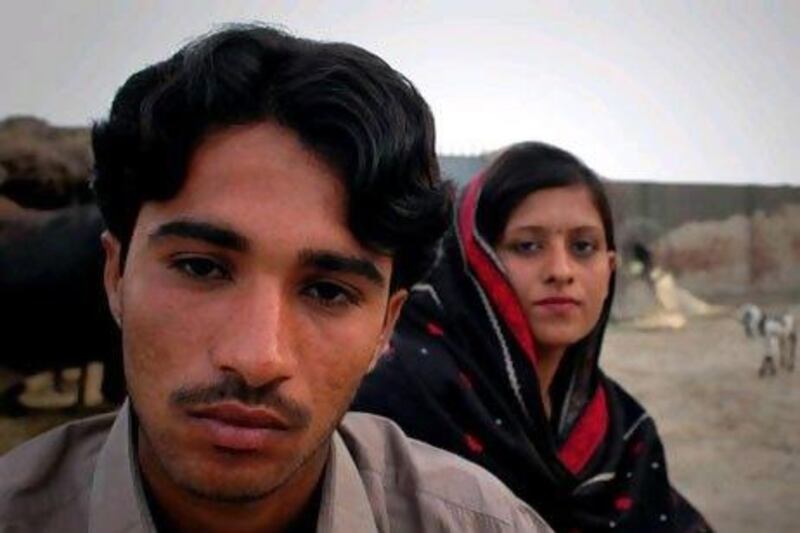It's the look in her eyes that is most revealing: the emptiness contained there reads like the pages of a tragic memoir. And the pursed lips, clamped shut in a gesture that belies the stories she wants to tell, the words that have risen in her throat, forced back by fear, or a sense of duty, or both.
There is also a lingering beauty in the features of her face. It's obvious that Shazia Chahchar was a beautiful woman once, but that elegance has faded, become worn out and tired. The youthful allure that is the trademark of young dreamers has crumbled under the weight of the harsh realities of life.
"I used to have dreams," she says, cradling her two-month-old son, her third child in five years. "But I've forgotten them all now."
Five years ago, Shazia told me about those dreams. She wanted to be a doctor, she said, a reasonable ambition for any 16-year-old, under normal circumstances. She wanted to do something to help the young women in Sindh's rural hinterlands - an altruistic motivation that filled my mind with respect for this slight, soft-spoken young woman.
Shazia, you see, didn't live under normal circumstances. Her world - the poor villages of Shikarpur district in Pakistan's rough-and-tumble centre - is a place where young girls are treated like property, bought and sold and traded by their male overlords, paid as compensation for land disputes, killed and raped for the slightest perceived transgressions. It's a place where girls are not supposed to dream.
But Shazia was unlike most of the girls and women I'd met during my two weeks researching the honour crimes phenomenon in Sindh. She had plans; she saw a future outside of the usual one reserved for poor villagers. And she was working hard for that future.
But then she made a fatal mistake: she fell in love.
In some ways, Shazia's story is a typical tale of tragic love, a South Asian Romeo and Juliet tragedy pitting one family against another in a world where passion and desire are emotions reserved for men.
It begins at midnight in 2004, in the wheat fields of Rethi village, a dangerous place even if you're not on the run - lawless and riddled with tribal wars. Shazia's ordeal unfolds with a meeting with her sweetheart, Ehsan, another secret encounter in an eight-month-long clandestine relationship, as innocent as it is perilous. Shazia is desperate. She has run out of her family's home after her father announced she was to be sold to a man 10 years her elder and a known criminal.
"He was a savage," says Shazia, who was 14 at the time. "I knew I could never marry him. I'd rather kill myself."
When she reaches Ehsan, she gives him an ultimatum: marry her or she would jump in the Indus River.
The next day, they were husband and wife, and running for their lives from Shazia's family. In the code of "honour" in this part of Pakistan, considered the honour crime capital of the world, Shazia was a black stain on the family. She was kari - a black woman - and the only way to cleanse the family name was her death.
Seven years have passed since that fateful night but Shazia's ordeal still hasn't ended. Abandoned by Pakistan's legal system, she lives life in a constant state of pause, a prisoner in the home of her in-laws, unable to leave the walled compound for fear that her family will take the opportunity to kill her. Her grandfather has died, her sister also, but she was unable to attend their funerals.
The desperation I heard in her voice when we first met five years ago has dissolved into a kind of stoic resolve.
"People tell me I married for love," she says, "that I should be strong. But how can I be strong when I have to live like this?"
Certainly, the ravages of captivity have taken their toll. Shazia is now 21 but her features exhibit all the pallor of a woman entering middle age. Flickers of vitality emerge only when she talks about her three children. They are her lifeline in a world that has lost all other meaning.
"God has blessed me," she says, beaming all her love into the face of her youngest child. "He has given me three boys. At least I don't have to watch a daughter suffer the way I have."





